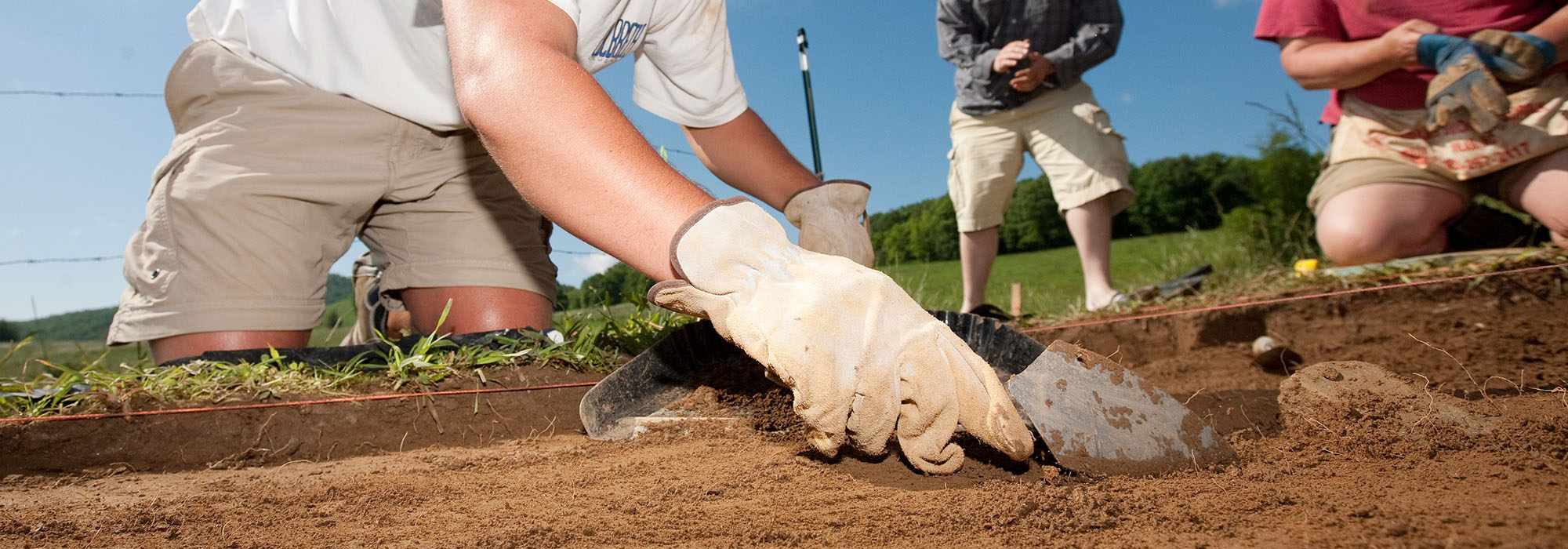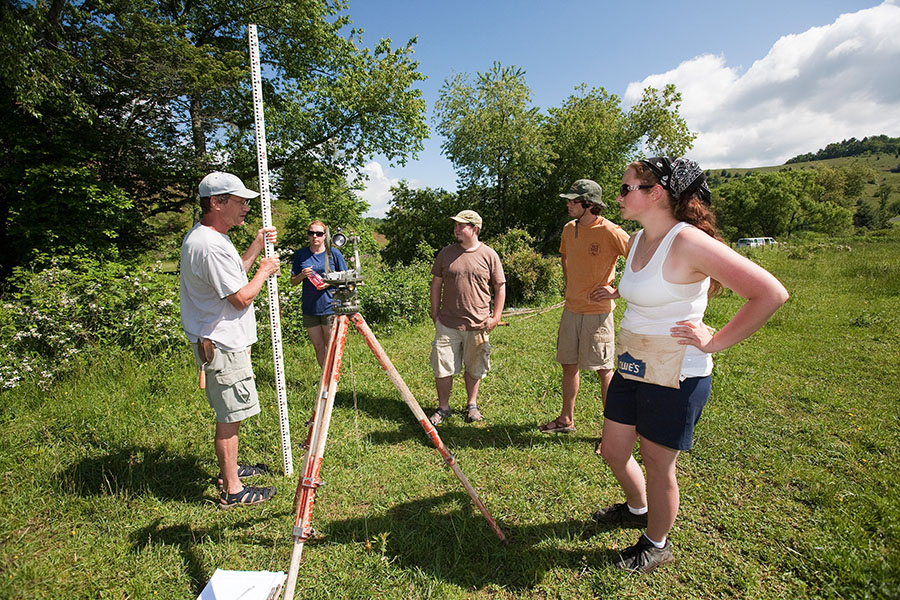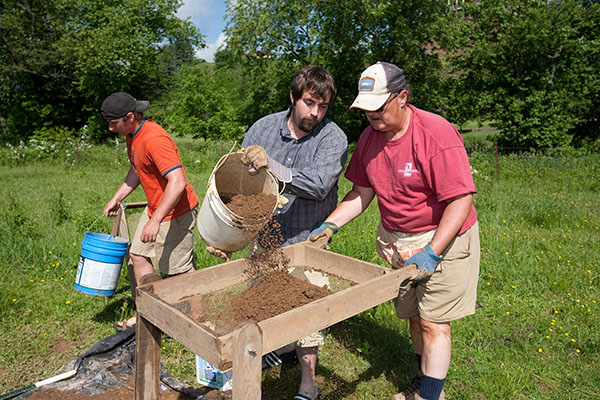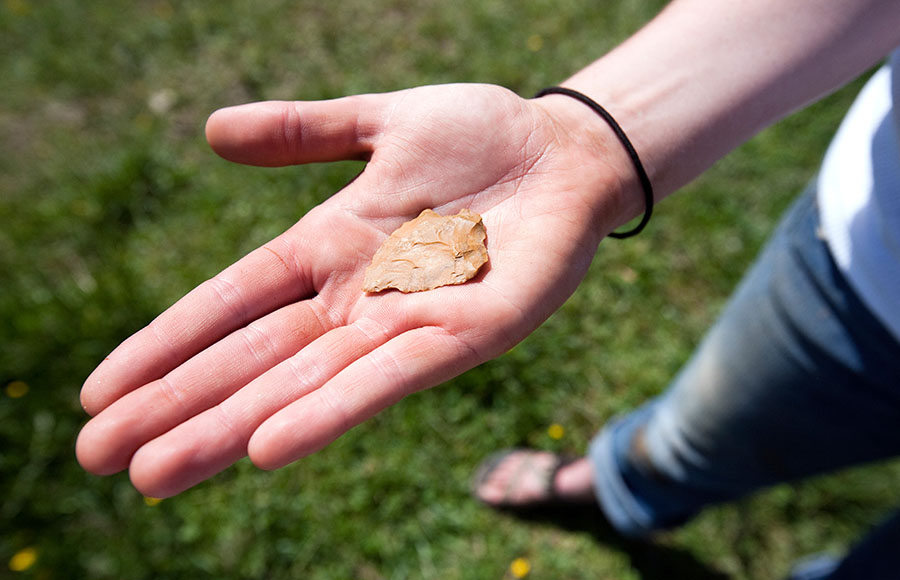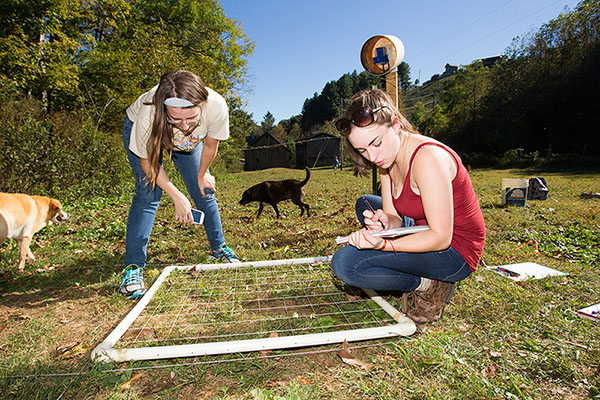Carefully digging, scraping and sifting. It's how archeologists seek clues into human history. Students at Appalachian State University learn these skills—and find cool artifacts—in a field archeology course each summer.
In an Ashe County cow pasture this past summer, students led by Dr. Tom Whyte examined the earth for traces left behind by early Native Americans. "Not much is known about this area," Whyte said of the New River valley. "We need to know what people were doing here and when."
The students found arrow points, scraping tools and bits of pottery. They also found burned rocks from ancient fireplaces.
Carefully digging, scraping and sifting. It's how archeologists seek clues into human history. Students at Appalachian State University learn these skills—and find cool artifacts—in a field archeology course each summer.
On site, Whyte estimated some of the materials to be as much as 12,000 years old, others about 7,500. Most date back to between 1,000 and 3,000 years ago. This fall, the students are examining the artifacts in Whyte's archeological laboratory methods class in the Department of Anthropology to pinpoint their ages more exactly.
For senior Tootsie Jablonski, the fieldwork made her anthropology major "come alive."
"In class we study all the points and materials used, but when you actually come out here and take it out of the ground and look at it, it makes everything a lot more real and easier to remember," she said.
Who was here before us?
Whyte reminds his students that "it's not what you find; it's what you find out." That attitude guides his research interests in Southern Appalachian prehistory. Recently, his work has focused on how climate change through time has affected human settlement in the uplands.
"At altitudes above 2,500 feet, very subtle changes in average annual temperatures and rainfall had a measurable impact on human life and on when people could survive in the mountains and during what seasons," Whyte explained.
Based on the evidence he's seen so far, Whyte believes humans did not keep permanent villages in the mountains until after about 900 A.D. when a short-lived warming trend occurred across much of the world. Those permanent villages disappeared after 1300 A.D., he said, which coincided with what's known as the Little Ice Age. "That might have compromised their crop harvests and their lives to the extent they could not sustain permanent villages in the higher elevations. We do find evidence of humans after 1300 A.D. but not villages. It seems to be seasonal migrations to the mountains," Whyte said.
Hands in the dirt
Like many Appalachian faculty members, Whyte encourages undergraduate students to assist him with his research. They gain a taste of what's expected of professional researchers, connect classroom experience with real-world opportunities and get to present papers at conferences.
Much of the fun, though, comes in mastering fieldwork: how to observe soil changes, recover artifacts, map and measure the earth, and use the tools of archeology.
"What I really like about archeology is the physical aspect, actually getting out and digging stuff up," said senior Jeffrey Johnson. "I've also always been a history buff, so archeology is finding out history for myself."
What do you think?
Share your feedback on this story.
Related links
About the Department of Anthropology
The Department of Anthropology offers a comparative and holistic approach to the study of the human experience. The anthropological perspective provides a broad understanding of the origins as well as the meaning of physical and cultural diversity in the world — past, present and future. Learn more at https://anthro.appstate.edu.
About the College of Arts and Sciences
The College of Arts and Sciences (CAS) at Appalachian State University is home to 17 academic departments, two centers and one residential college. These units span the humanities and the social, mathematical and natural sciences. CAS aims to develop a distinctive identity built upon our university's strengths, traditions and locations. The college’s values lie not only in service to the university and local community, but through inspiring, training, educating and sustaining the development of its students as global citizens. More than 6,800 student majors are enrolled in the college. As the college is also largely responsible for implementing App State’s general education curriculum, it is heavily involved in the education of all students at the university, including those pursuing majors in other colleges. Learn more at https://cas.appstate.edu.
About Appalachian State University
As a premier public institution, Appalachian State University prepares students to lead purposeful lives. App State is one of 17 campuses in the University of North Carolina System, with a national reputation for innovative teaching and opening access to a high-quality, cost-effective education. The university enrolls more than 21,000 students, has a low student-to-faculty ratio and offers more than 150 undergraduate and 80 graduate majors at its Boone and Hickory campuses and through App State Online. Learn more at https://www.appstate.edu.
